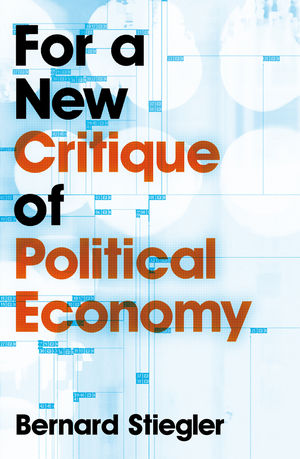Bruno Latour, Peter Weibel (eds.): Making Things Public: Atmospheres of Democracy (2005)
Filed under book, catalogue | Tags: · aesthetics, art, assemblage, democracy, philosophy, political economy, politics, science, societya, technology, things

“In this editorial and curatorial project, more than 100 writers, artists, and philosophers rethink what politics is about. In a time of political turmoil and anticlimax, this book redefines politics as operating in the realm of things. Politics is not just an arena, a profession, or a system, but a concern for things brought to the attention of the fluid and expansive constituency of the public. But how are things made public? What, we might ask, is a republic, a res publica, a public thing, if we do not know how to make things public? There are many other kinds of assemblies, which are not political in the usual sense, that gather a public around things—scientific laboratories, supermarkets, churches, and disputes involving natural resources like rivers, landscapes, and air. The authors of Making Things Public—and the ZKM show that the book accompanies—ask what would happen if politics revolved around disputed things. Instead of looking for democracy only in the official sphere of professional politics, they examine the new atmospheric conditions—technologies, interfaces, platforms, networks, and mediations that allow things to be made public. They show us that the old definition of politics is too narrow; there are many techniques of representation—in politics, science, and art—of which Parliaments and Congresses are only a part.”
The authors include Richard Rorty, Simon Schaffer, Peter Galison, Richard Powers, Lorraine Daston, Richard Aczel, and Donna Haraway; their writings are accompanied by excerpts from John Dewey, Shakespeare, Swift, La Fontaine, and Melville. More than 500 color images document the new idea of what Bruno Latour and Peter Weibel call an “object-oriented democracy.”
Publisher MIT Press, 2005
ISBN 0262122790, 9780262122795
1072 pages
Review: Anthony Iles (Mute).
PDF (82 MB, updated on 2020-7-13)
Comment (1)Bernard Stiegler: For a New Critique of Political Economy (2010)
Filed under book | Tags: · consumption, critique, economy, labour, marxism, philosophy, political economy, politics, society, technics

“The catastrophic economic, social and political crisis of our time calls for a new and original critique of political economy – a rethinking of Marx’s project in the very different conditions of twenty-first century capitalism.
Stiegler argues that today the proletarian must be reconceptualized as the economic agent whose knowledge and memory are confiscated by machines. This new sense of the term ‘proletarian’ is best understood by reference to Plato’s critique of exteriorized memory. By bringing together Plato and Marx, Stiegler can show how a generalized proletarianization now encompasses not only the muscular system, as Marx saw it, but also the nervous system of the so-called creative workers in the information industries. The proletarians of the former are deprived of their practical know-how, whereas the latter are shorn of their theoretical practice, and both suffer from a confiscation of the very possibility of a genuine art of living.
But the mechanisms at work in this new and accentuated form of proletarianization are the very mechanisms that may spur a reversal of the process. Such a reversal would imply a crucial distinction between one’s life work, originating in otium (leisure devoted to the techniques of the self), and the job, consisting in a negotium (the negotiation and calculation, increasingly restricted to short-term expectations), leading to the necessity of a new conception of economic value.
This short text offers an excellent introduction to Stiegler’s work while at the same time representing a political call to arms in the face of a deepening economic and social crisis.”
Publisher Polity, 2010
ISBN 0745648045, 9780745648040
100 pages
PDF (updated on 2020-8-7)
Comment (0)Juha Suoranta, Tere Vadén: Wikiworld (2008/2010)
Filed under book | Tags: · capitalism, collaboration, economy, education, learning, political economy, politics, socialist media, web 2.0

Wikiworld explores a revolution in the world of education. The way we learn is changing: institutionalised learning is transforming into new forms of critical learning and open collaboration. This book offers a historical and political framework to think about the future of learning and educational media.
The authors provide an overview of the use of new technologies and learning practices, and assess how the changing nature of education can lead to a more socially just future. At the same time, they place their analysis of education within a wider social and economic framework of contemporary capitalism.
Publisher Pluto Press, 2010
ISBN 0745328911, 9780745328911
176 pages
PDF (2010 version)
PDF (2008 version, copyleft)

